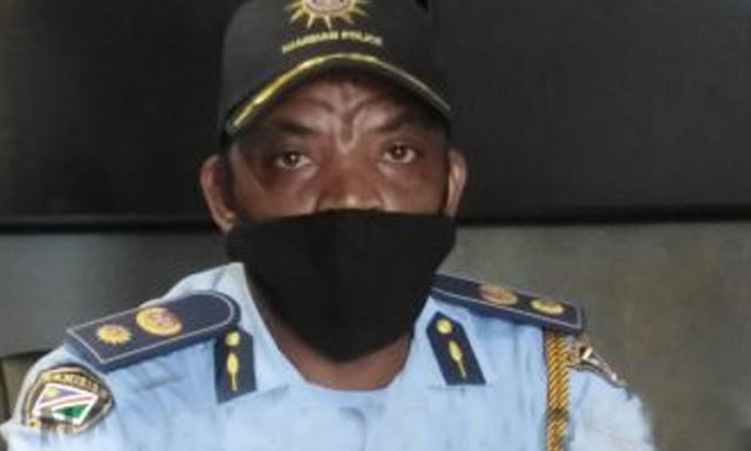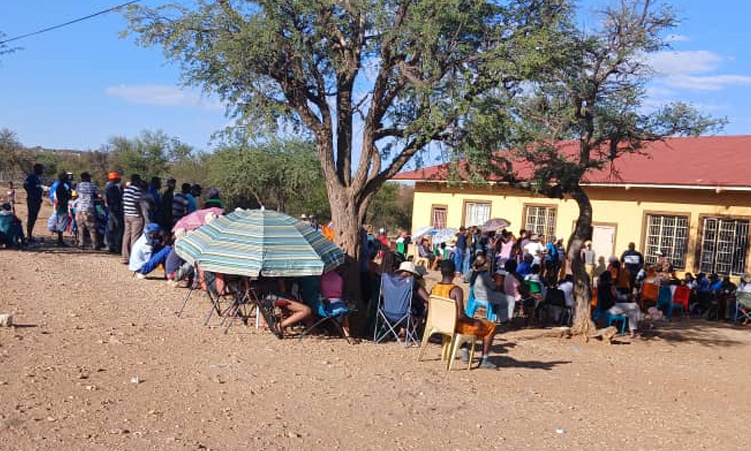BIG Brother has been watching and following the Lebanese-born but naturalised Namibian businessman Ali Fadl Ayoub for the past 15 years. But who is Ali Fadl Ayoub? Why are the authorities interested in him and suspecting him of having a hand in questionable financial transactions in which more than N$100 million was channelled out of the country?
And why do the authorities suspect that the money could have been used to finance terrorism activities in countries as near as South Africa and as far as Lebanon and Pakistan?
has established that the police, the secret service, the prosecution, ministry of home affairs… all have piles of files and data on Ayoub, dating as far back as eight years, when the focus changed from merely monitoring him to actively investigating him.
The activities he is suspected of being involved in include financing of terrorism activities, human trafficking, money laundering, drug dealing and fraud.
He is allegedly being investigated by the Namibia Central Intelligence Services (NCIS), the police intelligence, known as the special branch, military intelligence, the prosecutor general’s office and the financial intelligence centre.
But the authorities are at pains to confirm that they are investigating Ayoub or confirm any investigation linked to possible terrorism activities.
has also learned that the agencies are also engulfed in turf wars over jurisdiction of investigations. The lack of cohesion among the agencies has only served to hamper progress.
What has become clear is that in many instances when Ayoub is linked to a crime the cases against him do not make it to court, let alone having him charged.
Furthermore, The Namibian understands that the Financial Intelligence Centre is monitoring how Ayoub moves his money. Of particular interest to authorities is that at least N$27 million has been moved out of the country, through his accounts, in the last eight years.
The money was allegedly sent to a military outfit in Pakistan and to a bank account in Lebanon, where Namibian authorities believe he has links with Hizbolah.
found only two cases where Ayoub was formally charged.
In the latest case he is one of seven accused arrested in a case involving about N$7 million fraudulently siphoned from the ministry of works and transport, last year. He is out on bail of N$60 000.
In the older case, Ayoub was fined N$11 000, after he was convicted of culpable homicide, assault with the intent to do grievous bodily harm and malicious damage to property.
The case emanates from a 2000 road rage incident where he allegedly shot someone dead. He was convicted in 2002.
Ayoub has also been linked to human trafficking allegations. He was accused of having trafficked at least seven Namibians to Lebanon where they were allegedly subjected to slave labour on his farm.
newspaper reported during November 2011 that two of the trafficked Namibians were issued with AK47 assault rifles in Lebanon.
Despite media reports and a report issued by Namibia’s human rights watchdog NamRights, no case was ever opened and Ayoub was never charged for the human trafficking allegations.
At the time, he told that the Namibians were not trafficked but they went there to receive training on dairy farming on his farm in Hartun 85 kilometres south of Beirut.
Ayoub is also linked to investigations into the disappearance of N$74 million from Namibia. Former Windhoek mayor Agnes Kafula’s son Joel Kafula, who worked in the ministry of home affairs at Swakopmund is also implicated in this particular case.
In court documents, prosecutor general Martha Imalwa said Kafula processed fictitious passports used in opening bank accounts through which the N$74 million was channelled. Joel resigned from the ministry in July last year, the same month police started probing the transactions.
He is still being sought by the police to answer criminal charges. was also unable to contact Kafula for comment.
South African journalist De Wet Potgieter authored a book, ‘Black Widow White Widow ‘, which looked at whether al-Qaeda is operating in South Africa. In the book Potgieter states that cases like Kafula’s are the same methods used by alleged terrorists to infiltrate countries.
They buy their way into the home affairs and immigration offices to gain access to crucial documents such as passports. After that they then start using the country’s passports to carry out their illegal activities in the world.
Although Potgieter’s book mentions an Ayoub being involved in suspected terrorism activities in South Africa, The Namibian could not find any links or relations to Ali Ayoub.
While Police Inspector General Sebastian Ndeitunga confirmed that Kafula is still being investigated for money laundering, he could not confirm Ayoub’s involvement or that he was being investigated or under surveillance by the Namibian Police.
Home affairs permanent secretary Patrick Nandago could not be reached for comment regarding his ministry’s involvement in the investigations.
Yet, senior officials at the ministry of home affairs said government is not comfortable with Ayoub residing in Namibia but the ministry’s hands are tied because he is now a Namibian citizen.
Stay informed with The Namibian – your source for credible journalism. Get in-depth reporting and opinions for
only N$85 a month. Invest in journalism, invest in democracy –
Subscribe Now!






